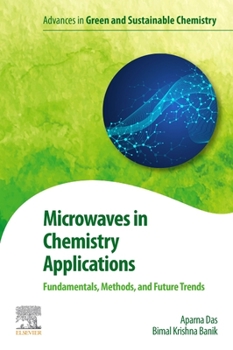Microwaves in Chemistry Applications: Fundamentals, Methods and Future Trends
Microwaves in Chemistry Applications: Fundamentals, Methods and Future Trends offers a number of benefits over conventional heating technologies, including acceleration of reaction rates, milder reaction conditions, higher chemical yields, lower energy usage and different reaction selectivity, all of which can improve the sustainability of processes. The book provides valuable insights into the underlying chemistry at play in microwave-assisted processes, introducing fundamental concepts, discussing the modeling of reactions in such processes, and also highlighting a range of key methods and applications of microwaves in chemistry for improved sustainability.
Beginning with an introduction to microwave chemistry, Part One discusses foundational principles, equipment and approaches for modeling reactions and assessing the outputs of those models. Methods in microwave chemistry are then the focus of Part Two, with microwave-assisted synthesis, catalysis, reduction and reactions all explored in detail. Part Three reflects on the practical usage of these methods to address specific issues, covering a number of interesting applications.





